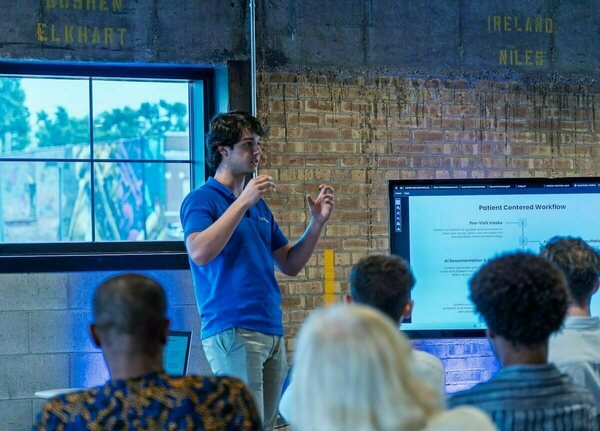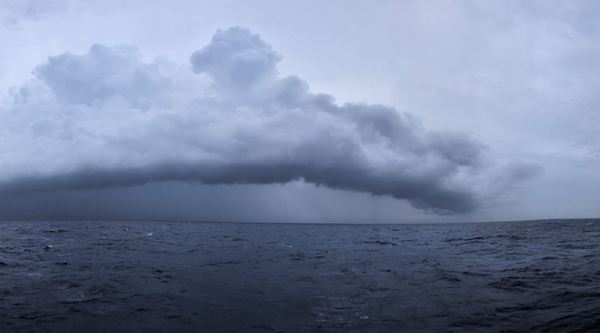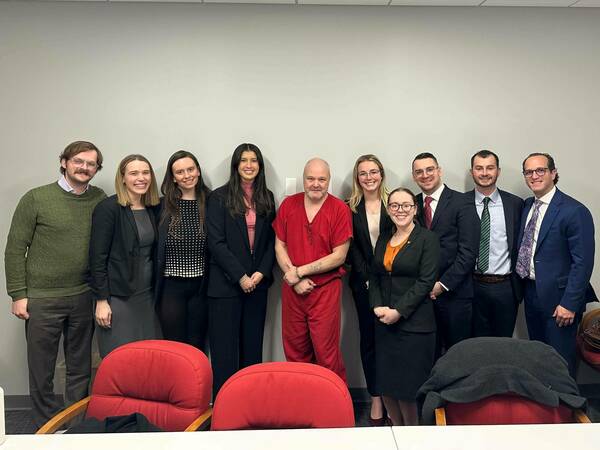Protective actions need regulatory support to fully defend homeowners and coastal communities, study finds
As climate change drives increasingly severe hurricanes, U.S. coastal communities are bearing the brunt of mounting losses. With regulations failing to curb the damage, homeowners have become the front line of defense — but their efforts often fall short, a recent study reveals.
Led by Tracy Kijewski-Correa, professor of engineering and global affairs at the Keough School of Global Affairs at the University of Notre Dame, the study, published in the International Journal of Disaster Risk Reduction, explored how homeowners respond in the aftermath of hurricanes when reconstruction becomes necessary. Focusing on Calcasieu Parish, Louisiana — a community still recovering from a sequence of disasters beginning with Hurricane Laura — the research introduced a new methodology to document homeowner actions, the damage they experienced and their recovery paths.
Why homeowners are key to reducing losses
“With no mandates to upgrade at-risk homes, homeowners will be responsible for adapting their properties to halt mounting climate-driven losses in the housing sector,” said Kijewski-Correa, who also serves as the director of the Pulte Institute for Global Development at the Keough School. “Unfortunately, we have no idea what decisions households are making and why — this study created a methodology to answer those questions so we can better incentivize them to adapt before the next storm.”
Since 1980, U.S. losses from tropical cyclones have reached $1.3 trillion, exposing how underprepared the country remains in addressing weather and climate disasters. This growing vulnerability is compounded by rapid population growth in coastal areas and outdated or inconsistent building codes.
Gaps in protection and future risks
Using indices developed for the study, researchers measured protection levels for a number of critical home components at key points: at the time of purchase, pre-disaster and after post-disaster repairs, as well as future intended upgrades.
The study found that, on average, homeowners took proactive steps to protect their properties before the hurricane, enhanced those protections after the storm and expressed intentions to continue investing in resilience. Roofs, windows and other external components were the primary focus of these improvements. However, the typical home achieved only about half the measures needed to withstand future storms effectively.
Visible damage in neighborhoods and the experiences of family and friends also influenced voluntary homeowner decisions to invest in protective measures. Motivated by observing widespread destruction across the community, even homeowners who escaped damage in Hurricane Laura expressed intentions to invest in resilience.
Policy and incentives: closing the protection gap
“Homeowners are making efforts to ‘build back better’ — strengthening roofs, adding hurricane clips or straps and replacing standard windows with impact-rated alternatives,” said Kijewski-Correa. “Unfortunately, most investments still leave homes only moderately protected against future hurricanes.”
The study’s methodology, which includes a flexible survey tool and evaluation methods to analyze homeowner decisions, provides a framework for future research. Next steps include identifying the factors that most effectively motivate homeowners to adopt comprehensive protections.
“Policies need to incentivize comprehensive, whole-house upgrades while ensuring clear messaging about the importance of these measures,” Kijewski-Correa said. “We also need to address barriers such as affordability and awareness, which often prevent households from taking action.”
Study co-authors include civil engineering Ph.D. student Rachel Hamburger and Debra Javeline, professor of political science, both from the University of Notre Dame. The research is funded through a National Science Foundation grant under the Strengthening American Infrastructure program.
Originally published by at keough.nd.edu on Jan. 15.
Contact: Tracy DeStazio, associate director of media relations, 574-631-9958 or tdestazi@nd.edu
Contact: Jessica Sieff, associate director of media relations, 574-631-3933, jsieff@nd.edu
Latest Research
- Fighting for Better Virus DetectionAn electronic nose developed by Notre Dame researchers is helping sniff out bird flu biomarkers for faster detection and fewer sick birds. Read the story
- Notre Dame’s seventh edition of Race to Revenue culminates in Demo Day, a celebration of student and alumni entrepreneurship…
- Managing director brings interdisciplinary background to Bioengineering & Life Sciences InitiativeThis story is part of a series of features highlighting the managing directors of the University's strategic initiatives. The managing directors are key (senior) staff members who work directly with the…
- Monsoon mechanics: civil engineers look for answers in the Bay of BengalOff the southwestern coast of India, a pool of unusually warm water forms, reaching 100 feet below the surface. Soon after, the air above begins to churn, triggering the summer monsoon season with its life-giving yet sometimes catastrophic rains. To better understand the link between the formation of the warm pool and the monsoon’s onset, five members of the University of Notre Dame’s Environmental Fluid Mechanics Laboratory set sail into the Bay of Bengal aboard the Thomas G. Thompson, a 274-foot vessel for oceanographic research.
- Exoneration Justice Clinic Victory: Jason Hubbell’s 1999 Murder Conviction Is VacatedThis past Friday, September 12, Bartholomew County Circuit Court Judge Kelly S. Benjamin entered an order vacating Exoneration Justice Clinic (EJC) client Jason Hubbell’s 1999 convictions for murder and criminal confinement based on the State of Indiana’s withholding of material exculpatory evidence implicating another man in the murder.
- Notre Dame to host summit on AI, faith and human flourishing, introducing new DELTA frameworkThe Institute for Ethics and the Common Good and the Notre Dame Ethics Initiative will host the Notre Dame Summit on AI, Faith and Human Flourishing on the University’s campus from Monday, Sept. 22 through Thursday, Sept. 25. This event will draw together a dynamic, ecumenical group of educators, faith leaders, technologists, journalists, policymakers and young people who believe in the enduring relevance of Christian ethical thought in a world of powerful AI.













